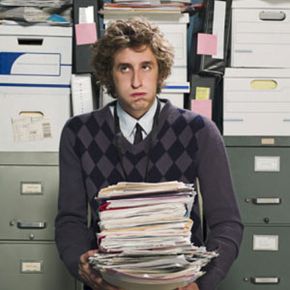You probably have a stack of documents that you know you should keep, but you may have no clue where to put them. Is that pile on your desk labeled "important" an appropriate option? Or should that stack go in that old shoebox under the bed? Storing important paperwork can be a challenge, but getting organized can save you time, eliminate clutter and give you peace of mind [source: National Association of Professional Organizers].
Getting organized is essential. If something came up and you needed to review a credit card statement from two months ago, would you know where to find it? Can you quickly gain access to your birth certificate and social security card? If the answer is no, then it may be time to do some organizing. Putting your important documents in order is not just a matter of aesthetics. If a fire or flood were to strike, knowing exactly how to access your family's important papers could save you a lot of hassle -- just think of the time and effort it would take to replace them. Another incentive for getting organized is the avoidance of the growing problem of identity theft. Having your social security number stolen can ruin your credit and lead to missed job opportunities [source: Federal Trade Commission].
Advertisement
Having a system in place that allows you to quickly gain access to your important documents will eliminate a lot of stress. There are people who make a living out of helping others get organized, and while it's not necessary for you to be a professional -- or to hire one -- you can follow their lead and make some changes that will leave you feeling a little less stressed and a little more productive.
Check out the next page for tips on how you can start getting organized.
Advertisement
